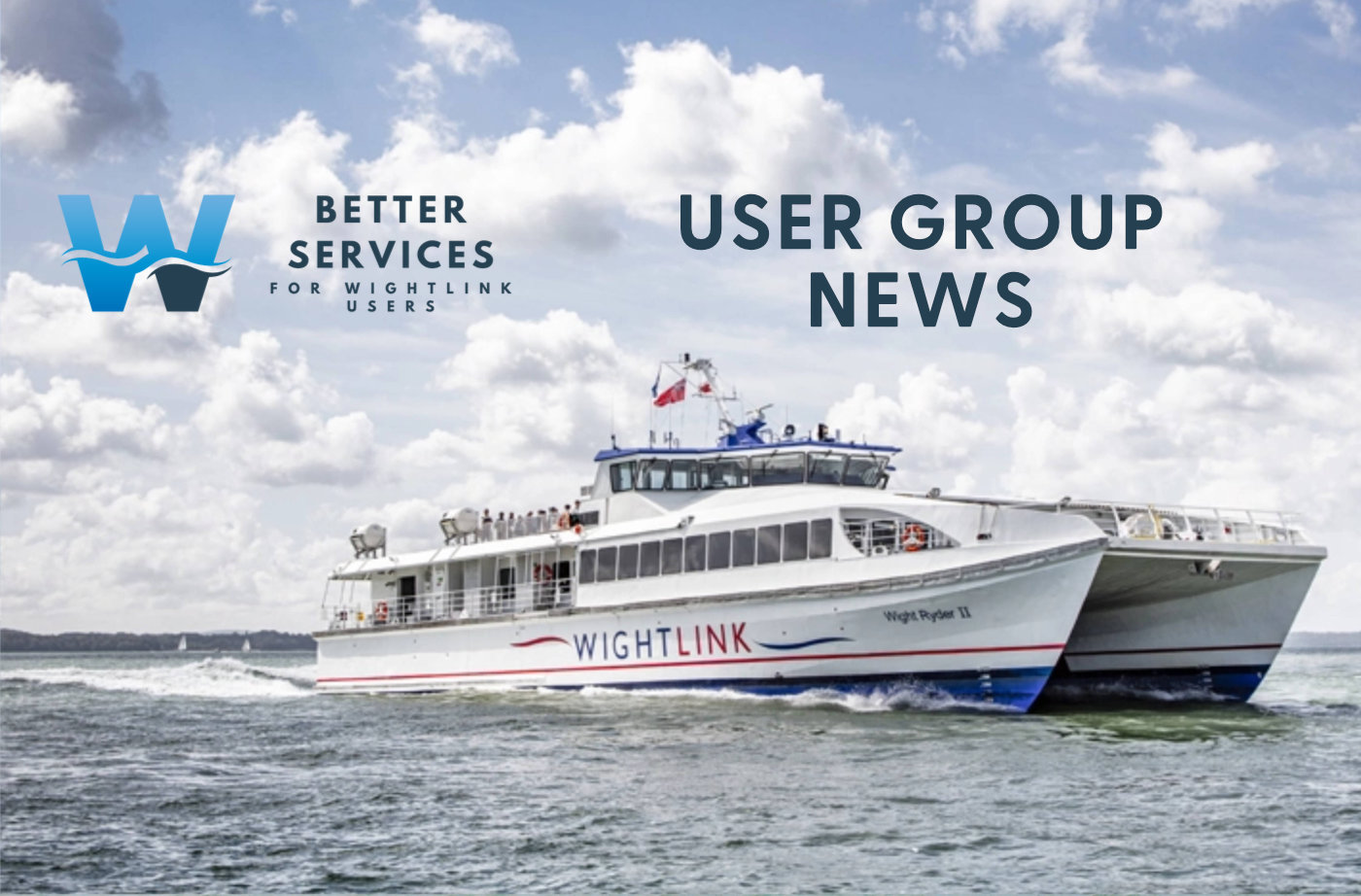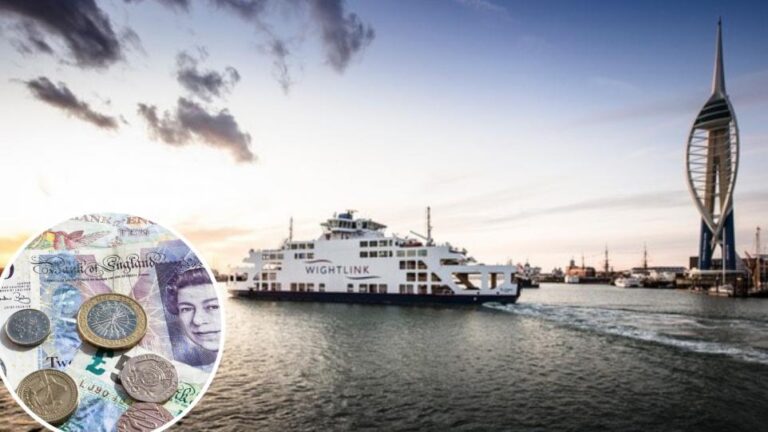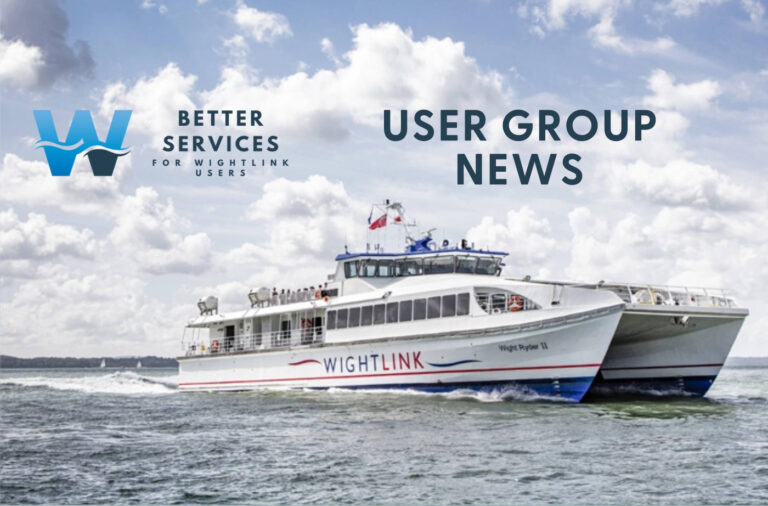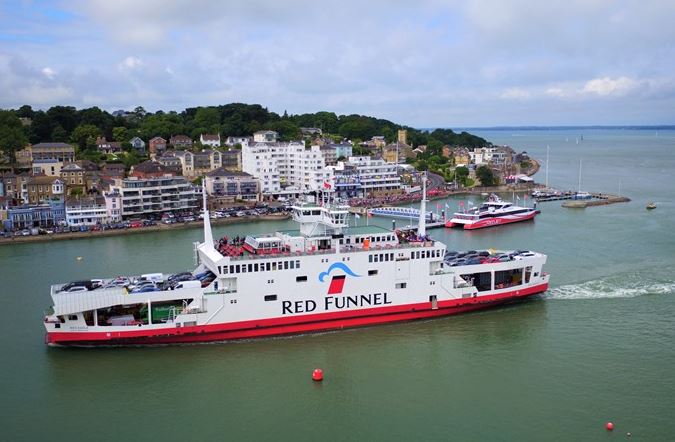Account of Wightlink’s Financial History

Account of Wightlink’s Financial History
Privatisation.
On the 27th July 1984 Sealink, comprising 37 ships, 10 harbours and 24 routes, was sold by the UK Government with no public service obligation to US Virgin Island-based Sea Containers for £66 million and became known as Sealink British Ferries Ltd.
Wightlink.
Following the takeover of Sealink British Ferries by the Swedish Stena Line, the Isle of Wight ferries division was excluded from the sale and remained with Sea Containers. Unable to continue using the Sealink trading name Wightlink was created on the 1st June 1990. On the day of transfer Wightlink also became the harbour authority for Fishbourne unlike Yarmouth and Cowes Harbours which are owned and managed by their Harbour Commissioners. (A harbour authority is an independent self-governing body that is responsible for safely managing and efficiently running a harbour.)
The Buy-In.
In June 1995 the company was the subject of a management buy-in. CinVen and RBS’s leveraged finance division helped the Wightlink chief executive and his fellow managers buy the business from Sea Containers for £107.5m. In 2001 the management team bought out CinVen for £180m and it remained a private company until 2005, a brief four year period when ‘asset managers’ were not in control. It was then acquired by the world’s largest infrastructure-focused manager, Australia’s Macquarie European Infrastructure Fund. Fares rose, late night services were cut to trim costs, and staff numbers were reduced. On 16 February 2015, Wightlink was sold by the Macquarie European Infrastructure Fund to Balfour Beatty Infrastructure Partners (BBIP) for a reported £230m. It is worth noting that the CEO’s salary that year was £714,000.
In July 2016, Balfour Beatty exited BBIP, which became Basalt Infrastructure Partners. Basalt is the investment arm of Balfour Beatty, so this was an administrative disposal.
In July 2018 The Times reported that, Wightlink, “A ferry operator that sails to the Isle of Wight could be sold for an estimated £300m.” In May 2019, BBIP sold a 50% stake in the business to Fiera Infrastructure of Canada for an undisclosed sum.
Directors.
Wightlink, is one of a Group of 5 subsidiary companies in a holding company structure, headed up by the ultimate parent company, Arca Topco which was incorporated on 10th Oct 2014 .
The accounts state that the Directors of Arca Topco are not employed by the Group. They are employees of the shareholders, Basalt & Fiera.
The companies in the Group are: Wightlink, Arca Shipping, Arca Bidco, Arca Midco, Arca Holdco, and Arca Topco.
The subsidiaries are all set up as separate legal entities giving the ultimate parent company, Arca Topco, protection from any operational or financial liabilities arising in any of the subsidiary companies.
At the operational end of the business – in Wightlink and Arca Shipping – the Directors are employed by the company.
The directors of Arca Topco are:
Daniel Anderson – Director at Fiera Infrastructure
Jason Cogley – Managing Director at Fiera Infrastructure
Steven Lowry – Partner, Chief Investment Officer at Basalt
Neil O’Hara – Partner, Head of Asset Management at Basalt
Marcus Berg – Principal at Basalt
The directors of Wightlink are the same as Arca Topco with the addition of:
Keith G Greenfield CEO Wightlink
R D Sammons
Paul Richard Winter[1]
The directors of Arca Shipping are the same as Arca Topco with the addition of:
K G Greenfield
P R Winter
The directors of Arca Bidco, Arca Midco and Arca Holdco are the same as Arca Topco with the addition of:
P R Winter
Fiera and Basalt’s representatives are Directors of every subsidiary in the Group, giving them the power to affect decisions at every level of the business.
In 2018 a report written for the Isle of Wight Transport Infrastructure Task Force was published. It states, “Wightlink Ltd is part of a complex group structure, presumably established to minimise tax liabilities and maximise profits. The statutory accounts reviewed during this analysis comply with regulations and have received unqualified audit reports; however they are opaque to a lay reader and take advantage of all disclosure exemptions available.” Report written by A-To-There Consultants entitled, Evidence Based Assessment of Cross-Solent Ferry Operations.
In 2018 Wightlink made a profit of £16.6million and paid its shareholders dividends of £14.5million.
Financial Management
We know from the 2021/22 accounts that WL had a turnover of £71million and a profit of £14million[2]. In June 2022 Wightlink declared a dividend of £8million.
Arca Shipping carries the intra group loan of £398million and after payment of interest on this loan, made a loss of £22million. Arca Bidco received the interest payment from Arca Shipping, and this together with other interest payments made a profit of £19million. £6million of this profit was transferred to Arca Holdco, and was paid out as interest payments to the Basalt and Fiera shareholders. Arca Holdco also holds the loans from shareholders of £88million. Arca Topco and Arca Midco have identical accounts and show total borrowings of £263million. Of this, £88million is intra-group and £175million is external bank debt. Of this £175million, £153million is fixed at 1.5% until February 2025. Both show a loss of £8.4million
Private Equity Funds – Asset-Management Companies
It is important to note that WL is not a public limited company, meaning the public cannot own WL shares.
Professor Christophers[3] assessment is as follows: “What asset-manager owners of essential infrastructure actually do, how, and with what consequences for society, has long been hidden from public view. “What we do is behind the scenes”, the head of one leading such firm once said to the Financial Times. “Nobody knows we’re there”.” He continues, “Asset-manager ownership of essential physical infrastructures in transportation, energy, housing and other sectors generally results in deleterious outcomes, not least for the users of such infrastructure. Usage charges escalate rapidly; infrastructure maintenance and upgrades wane. At the same time, the asset managers themselves extract egregious riches, while using financial wizardry to minimise taxes paid.”
The accounts from 2017-2019 showed WL made net profits of over £50 million. 90% of that profit was payout as dividends or bonuses apportioned between Arca Shipping and WL’s Directors.
Levels of Profitibility
Perhaps more important is the levels of profitability in the business. The last 10 years of available accounts, (up to 2022) shows an operating margin average of 20.4% on normal activities (ie excluding exceptional items as defined in the accounts). And that includes 2 years of COVID. The most recent year was 26.5%. Regulated transport companies in the UK (rail) are effectively capped at 4-6% and they have minimum service requirements on top. Wightlink could significantly reduce fares in a regulated environment.
Most business observers will say margins that high are only achieved with significant competitive advantage (say technology or brand), or in a monopoly / oligopoly.
Government Subsidies.
In November 2020 Wightlink launched a consultation with staff following their announced £20m losses since the start of the Covid-19 pandemic, declaring that they must become a more sustainable business to cope with future financial risks. The government handouts to WL totalled £6.4 million in 2021 with a further £894,000 in 2022. In June 2022 after WL received that huge sum from the Government, they paid themselves £8,000,000 in dividends directly to the shareholders.
The RMT Union was particularly aggrieved as it stated that at the height of the pandemic (April to September 2020) employees loaned 20% of their salary and gave up terms and conditions for 6 months to allow the company to keep trading.
In 2021 WL received a £9.387 million insurance payout for the reduction in revenue caused by the Covid crisis.
Tax
Over the last 6 years WL has effectively paid no tax. Since 2017 WL has paid £4,625,000 in tax. However, in the same period, their tax rebates were £6,822,000.
[1] Also director of MAGENTA COURT RTM COMPANY LTD, property management
[2] All figures in £ and rounded to nearest million for ease of reading.
[3] Author of the book – Our Lives in Their Portfolios: Why Asset Managers Own the World (2023)



